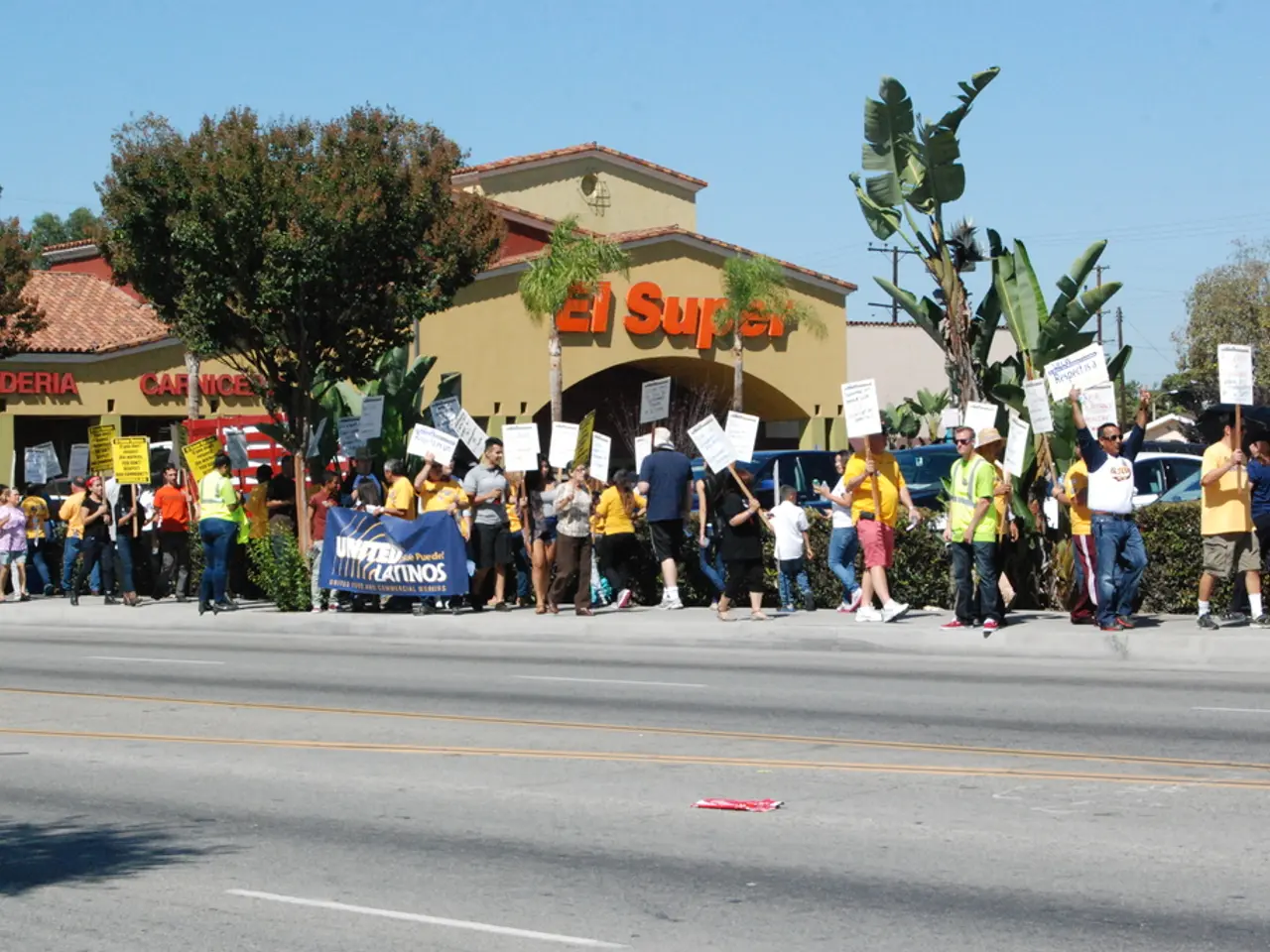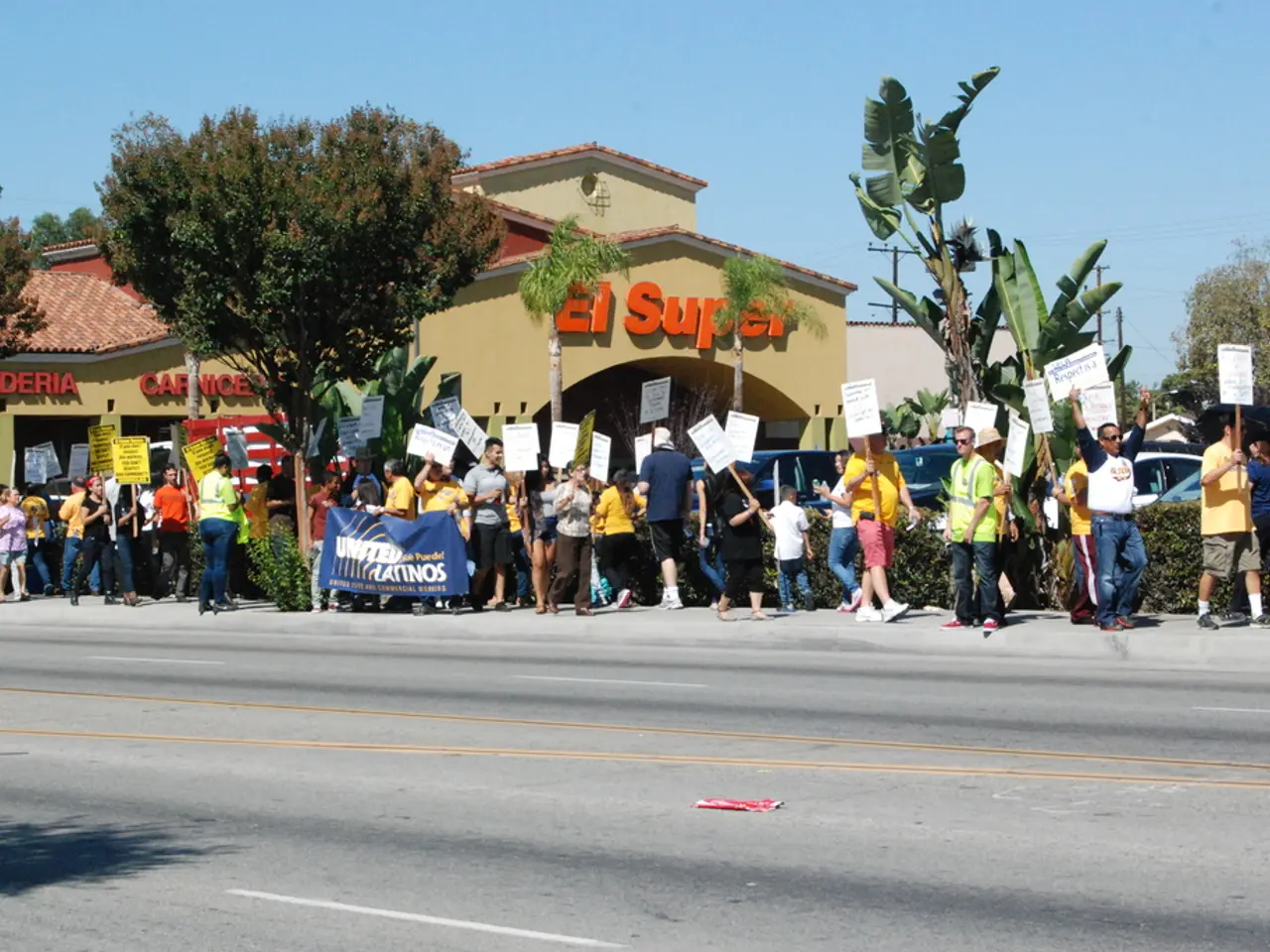Lowering the voting age nationally from 18 to 16 as per government proposals in the UK
The United Kingdom has announced plans to lower the voting age to 16 for all national elections, marking a significant step in modernizing the country's democracy. This reform, which aligns with the current practices in Scotland, Wales, and the Channel Islands, is set to be implemented in the next general election.
The proposed change reflects the recognition that young people contribute to society through work, taxes, and military service, and their voices should be heard in the political arena as well. This move is part of a broader global trend towards younger enfranchisement, with several countries and regions experimenting with lowering the voting age to 16.
In support of the reform, Rushanara Ali, parliamentary under-secretary for local government, stated, "Young people deserve to have a stake and to have a say in the future of our democracy." Darren Hughes, chief executive of the Electoral Reform Society, also welcomed the proposed reforms, asserting that they would help more young people participate in elections.
However, the proposed reform has drawn criticism, particularly from the Conservative Party. Lawmaker and shadow cabinet member Paul Holmes questioned why 16-year-olds would be allowed to vote but not engage in other activities like buying a lottery ticket or getting married. James Yucel, head of campaigns at the center-right thinktank Onward, further stated that the proposal is "political engineering aimed at boosting Labour's support."
Despite these criticisms, the government maintains that the reform is essential for democratic engagement and trust in the political system. Participation in elections is considered a vital sign of the health of a democracy, and this move aims to encourage more young people to vote and form a habit of political participation.
In addition to lowering the voting age, the proposed reforms would expand acceptable voter ID to include digital formats of existing IDs, such as driving licenses and armed forces' veterans' cards. UK-issued bank cards would also be accepted, aiming to make the voting process more accessible and secure.
As the United Kingdom prepares to take this step, the focus remains on the potential benefits for democratic engagement and the restoration of trust in the political system. The reform, if passed, could mark a turning point in the UK's democratic landscape, aligning it with the changing societal demographics and fostering a more inclusive and participatory democracy.
[1] Source: BBC News, "UK voting age to be lowered to 16 in all elections", July 2025.
- The proposed lowering of the voting age in the United Kingdom to 16 aligns with a broader global trend, as numerous countries and regions are experimenting with similar policies, reflecting the belief that young people should have a voice in policy-and-legislation and general-news matters.
- The UK's plans to allow 16-year-olds to vote are part of a broader approach to strengthen democratic engagement and trust in the political system, as the government views widespread participation in elections as a vital indicator of a healthy democracy, particularly amidst shifting societal demographics.






